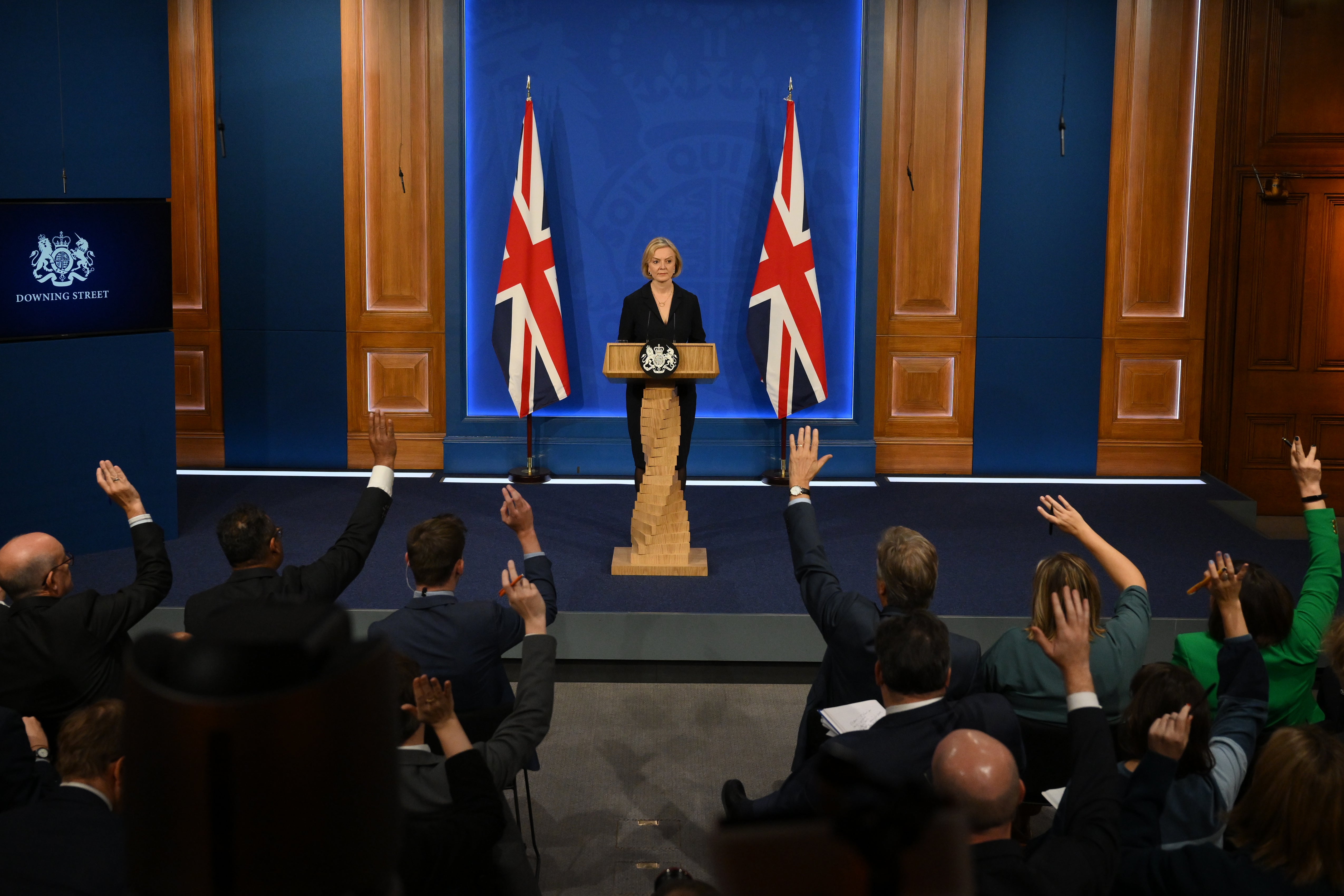After another major U-turn, it’s time for a general election
Editorial: If Ms Truss wants to stay on as prime minister, she must put her case to the British people

When Liz Truss became prime minister, this marked a significant change in the government’s programme. Quite how dramatic the change was remained partly concealed until Kwasi Kwarteng, her short-lived chancellor, delivered his mini-Budget on 23 September.
His tax cuts, which went further than those promised by Ms Truss in her leadership campaign, were a disastrous policy to inflict on the country. The loss of confidence that they engendered has added to the cost of borrowing for the government, and for millions of mortgage holders.
Ms Truss had no credible mandate for her abrupt change of direction. She managed to impress a tiny and unrepresentative subgroup of the population – 81,000 Conservative Party members – that unfunded tax cuts were a good idea. She complained, with the specious reasoning of a zealot, that Boris Johnson and Rishi Sunak had broken the mandate of the 2019 Tory manifesto by raising taxes. In fact, they had remained true to the overriding promise in that manifesto to keep debt under control.
Having collided with reality, namely the laws of supply and demand in the market for public debt, she has had to revert to the policies of “the previous government”, as she described it on Friday.
Her decision to restore some semblance of order to the public finances is a welcome one. The removal of her chancellor was a step in the right direction. The return to the previous policy is more credible if it is implemented by someone who believes in it. Jeremy Hunt said the right things in his interviews on the morning after his appointment, although it should not be controversial that tax cuts for the wealthiest were “a mistake” at a time of collective hardship, or that the government’s sums should “add up”.
But the prime minister conspicuously failed to answer the question: why should Mr Kwarteng go and she stay, given that they worked “in lockstep” in devising the failed policy?
And there is a more important issue of principle. Given that the government has changed its fundamental position on taxes and public spending twice in a few weeks, what democratic authority does it have? Ms Truss was elected by the members of her party to pursue one policy, but is now pursuing the policy of Rishi Sunak, her defeated opponent. It is a policy in which she does not believe, and her authority has been shot to pieces.
The response of many of her own MPs, even of many who supported her, is to devise ways in which a third prime minister could take office since the last election, without reference either to Tory members or to the general electorate. This would be to stretch the democratic elastic too far.
If Ms Truss wants to stay on as prime minister, she must put her case to the British people. If her MPs want to replace her as prime minister, whoever replaces her must do likewise. There are, as Jeremy Hunt, the new chancellor, says, “very difficult choices” to be made in the forthcoming Budget at the end of this month. There will continue to be difficult choices to be made in the next few months.
To keep up to speed with all the latest opinions and comment, sign up to our free weekly Voices Dispatches newsletter by clicking here
Although the two main parties are closer together on policy since Ms Truss returned from her “holiday from reality”, as Michael Gove called it, there remain important differences between them. Labour would presumably want to raise more money from windfall taxes on energy companies than the Conservatives, and to cut public spending by less.
These are questions that should be decided in a general election, not in the strange bubble of another Tory leadership election. The Tory party has been in government for so long that it has become hopelessly inward-looking, and it has lost its connection with the people who voted for it just three years ago.
The future of the country cannot be decided by plotting and U-turns at Westminster; it should be decided by the people in a general election now.
Join our commenting forum
Join thought-provoking conversations, follow other Independent readers and see their replies
Comments
Bookmark popover
Removed from bookmarks